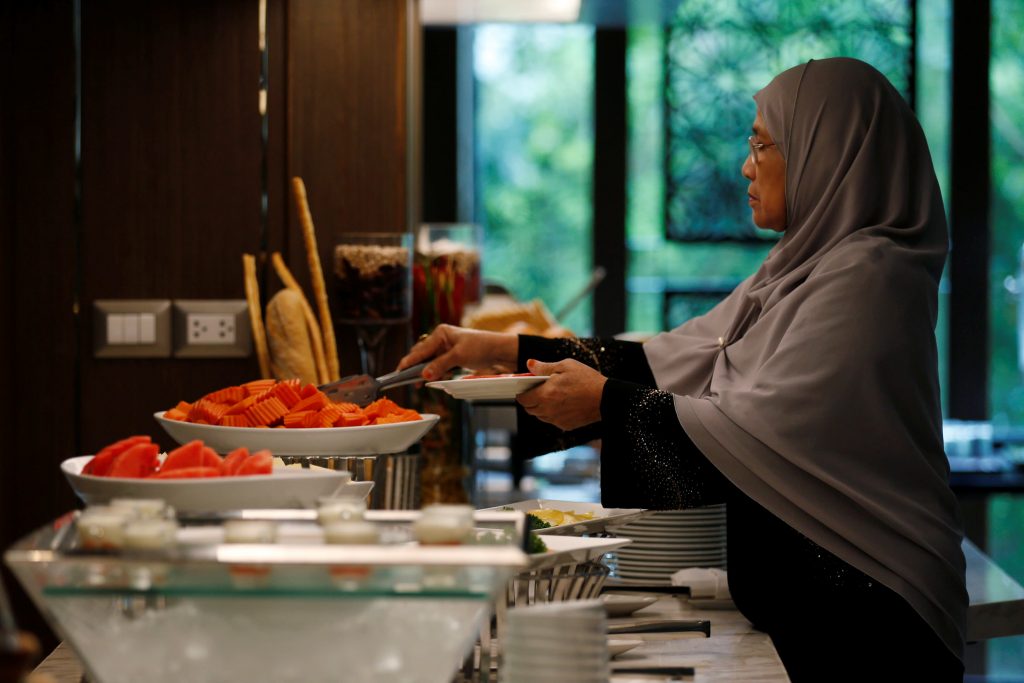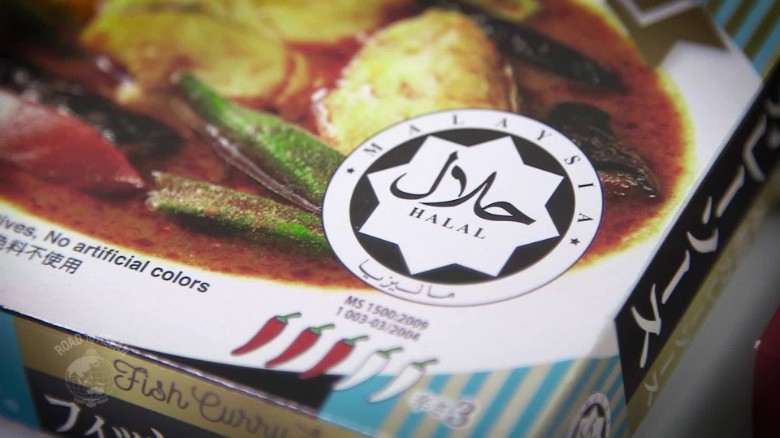Work is going around the clock to welcome athletes from around the world for the Tokyo 2020 Olympic Games.
With thousands of Muslim athletes and fans expected, preparations for halal food remain one of the main challenges Japan faces.
Yet, it is not only Japan that currently works to accommodate Muslim athletes with halal food meals.
A small factory in Malaysia’s capital is preparing thousands of ready-to-eat halal meals, from fried rice to chicken biryani, to be shipped off to Japan for 2020’s biggest sporting event.
“It’s a huge platform and opportunity for us,” Ahmad Husaini Hassan, boss of the MyChef company making the meals in Kuala Lumpur, told Reuters.
“Our intention is not to go in and out. We’ve to go in and stay for the long term.”
The 2020 Summer Olympics in Tokyo will take place from 24 July to 9 August. More than 50 Muslim countries will participate in the event in addition to hundreds of Muslim athletes from other nations as well.
As Japan looks to draw a record 40 million tourists this year, Malaysia estimates 8 million of them will be Muslim.

Muslims in Japan
Historically, the earliest Muslim records of Japan can be found in the works of the Muslim cartographer Ibn Khordadbeh.
In 2010, Pew Research Center estimated there were 185,000 Muslims in Japan. In general, 55.8% of Japanese believe in Shinto while 34.9% adhere to Buddhism.
Halal Food in Japan
Interestingly, MyChef isn’t the only company to show interest in presenting halal foods as there have been several initiatives from different sides in the East Asian nation to welcome its expected Muslim guests.
In March 2018, cooperation has occurred between the Muslim World League (MWL) and Japan Halal Business Association (JHA) when both sides have signed an agreement to regulate and certify halal food in Japan.
This was followed in September 2018 when JHA, now being a major incorporated association in helping companies develop and export products suited to Muslims, held a workshop for Japanese chefs in Shizuoka city on preparing halal cuisine.

What Is Halal?
The halal term is commonly used for meat, but it’s also applied to other food products, cosmetics, personal care products, and pharmaceuticals which mustn’t be derived from non-halal sources like pork.
Halal also applies to any other consumed and edible materials which mustn’t be harmful to human health. For example, Islam considers wines, alcoholic beverages, cigarettes, E-cigs, hookah and other unhealthy things to be non-halal.
In the few previous years and due to the booming number of Muslim tourists visiting Japan aside from the Tokyo 2020 Olympics, several Japanese sectors have become friendlier to Muslim visitors.
This campaign, which is encouraged by the governmental tourism authorities, included building mobile mosques, prayer rooms in a few hotels, halal cosmetics shops, as well as Muslim-friendly facilities at major touristic sites like Mount Fuji.